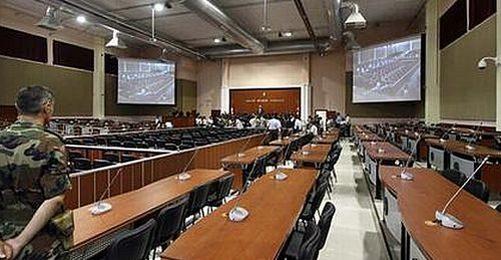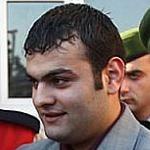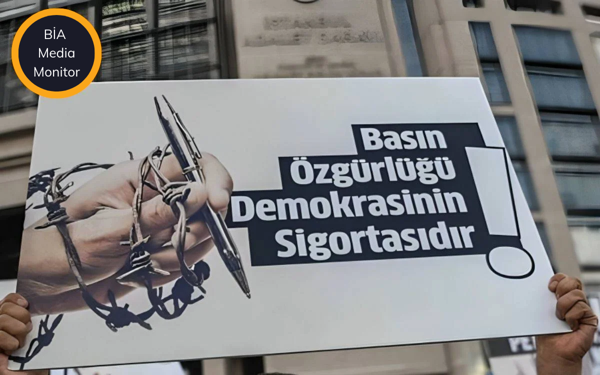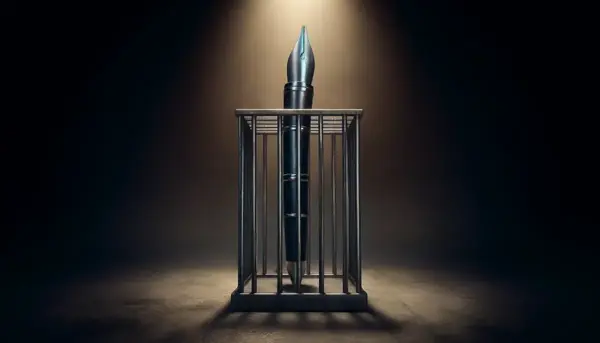Prime Minister Recep Tayyip Erdoğan commented on the recent decision by the Court of Appeals 9th Chamber regarding a limitation of the period of arrest and called it the "efficiency of the judiciary". According to the decision, the period of detention for terror crime defendants of pending trials has been limited to a maximum of ten years.
Being asked whether the regulation would enter the law, Erdoğan replied, "The necessary things will be done if needed. However, there is no such thing right now. This issue is done upon previously enforces legal regulations [...]".
Head of Bar Association says "four years"
The amendment of Article 102 of the Criminal Procedure Law (CMK) was enforced on 1 January 2011. In a broadcast of the Turkish news channel NTV, Democratic Judiciary Association Executive Uğur Yiğit criticised the length of the period of arrest.
"As long as the conditions at the judiciary have not changed, we will be the ones to discuss this issue", Yiğit said about the lengthy detention periods. Istanbul Bar Association President and lecturer Dr. Ümit Kocasakal argued in the same program, "One plus three makes four as far as I understand", referring to the maximum length of the period of arrest.
In an interview with bianet, lawyer Ercan Kanar had previously pointed to a liberal interpretation of the regulation and said that detainees could be released after four years pending trial.
Milliyet newspaper writer Rıza Türkmen, former judge for Turkey at the European Court of Human Rights (ECHR), criticized the implementation of the regulation only for defendants who were detained more than ten years. He put pen to paper in his column entitled "How not to become a state of law". Ho
Türkmen pointed to the danger of opposing the European Convention of Human Rights:
"The ECHR primarily looks at the requirements of detention and whether the shown reasons are sufficient or not. It is seen as a violation if the requirements of detention do not exist. If the requirements of detention are fulfilled, the duration is to be evaluated. However, ten years is a very long period under any kind of requirements".
Defendants of major trials will not benefit from the regulation
The Court of Appeals announced on 3 January that the upper limit for the period of arrest for defendants of heavy crimes was set at five years and for defendants charged with "terror crimes" at ten years. However, this regulation will not be applied to the defendants of the Ergenekon case, the Hrant Dink murder trial and the trial regarding the killing of three people of the Zirve Publishing House in Malatya (south-eastern Anatolia).
On Monday evening (3 January), the Diyarbakır 6th High Criminal Court released five defendants of the Hezbollah trial from the Diyarbakır D Type Prison upon the amendment of Article 102 CMK. Their releases were celebrated by a group of people who gathered in front of the prison. Two of the five defendants are supposed members of the organization's leadership.
The names of the defendants released pending trial are Edip Gümüş, Mehmet Varol, Mustafa İpek, Sinan Yakut and Şehmus Kınay. It was announced that defendants Cemal Tutar, Fuat Balca, Mahmut Demir, Kemal Gülşen and Abdülkerim Kaya were taken to the Military Branch on the grounds of military issues.
The released defendants are not allowed to leave the country. They have to report to the police or the gendarmerie on a daily basis.
Mass murderer suspects released
Gümüş and Tutar were caught in an operation on 17 January 2000 in Beykoz/Istanbul. Hezbollah executive Hüseyin Velioğlu was killed in the course of the operation. Gümüş stands accused of having killed 42 people; Tutar is alleged to have killed 73 people. (EÖ/EÜ/VK)


















